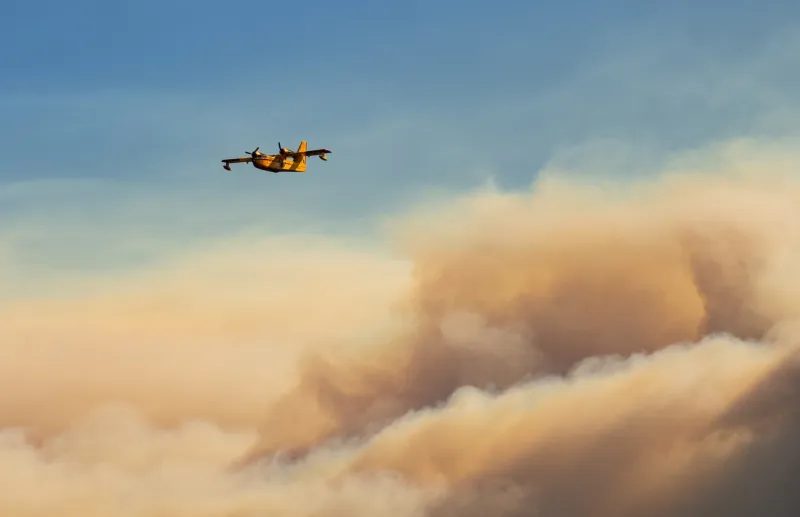Publications
Wildfires in Portugal
The past month of August was, once again, marked by the huge wave of fires that year after year tends to repeat.
Portugal has, so far, more than 105 thousand hectares of burned area in more than 9700 recorded occurrences.
According to data provided by the ICNF (Instituto da Conservação da Natureza e das Florestas), of the total area burned so far, 52% are forest stands, 39% bush and 9% agricultural production areas.
Despite the decrease in rural fires, the burned area largely exceeds the target proposed by the National Action Plan (60 thousand hectares).
Alongside these events, not only Portugal, but also the world is experiencing a global drought, which further exacerbates the precarious state of economies that navigate the instability of a post-covid era with a war that seems to have no end.
Adopting a more sustainable lifestyle is no longer a mere responsible decision to be an urgent necessity for our future.
The past month of August was, once again, marked by the huge wave of fires that year after year tends to repeat.
Portugal has, so far, more than 105 thousand hectares of burned area in more than 9700 recorded occurrences.
According to data provided by the ICNF (https://www.icnf.pt/) (Instituto da Conservação da Natureza e das Florestas), of the total area burned so far, 52% are forest stands, 39% bush and 9% agricultural production areas.
Despite the decrease in rural fires, the burned area largely exceeds the target proposed by the National Action Plan (60 thousand hectares).
Alongside these events, not only Portugal, but also the world is experiencing a global drought, which further exacerbates the precarious state of economies that navigate the instability of a post-covid era with a war that seems to have no end.
Adopting a more sustainable lifestyle is no longer a mere responsible decision to be an urgent necessity for our future.
